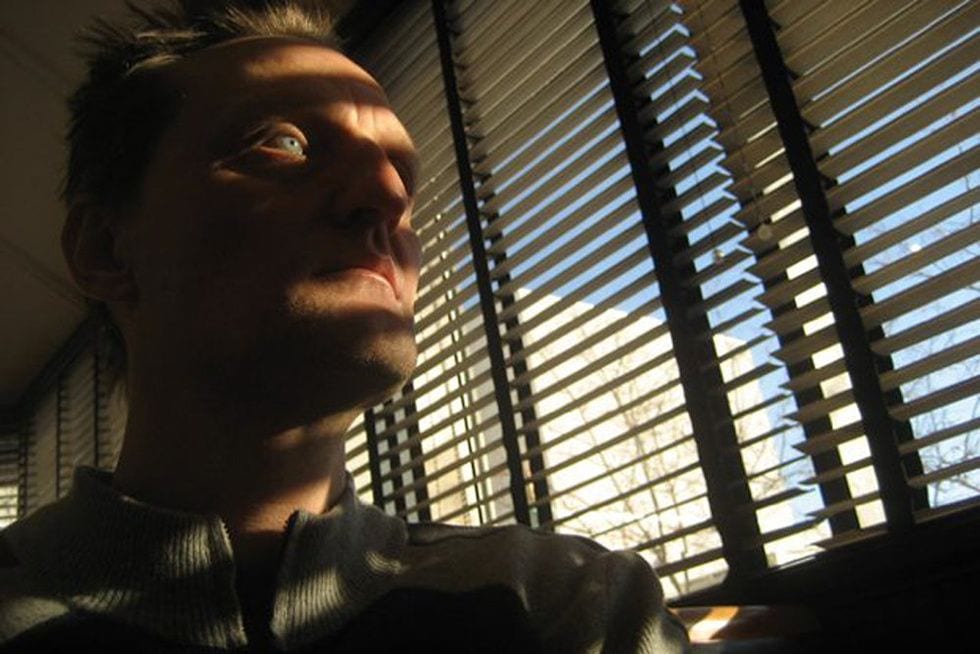
The thing that’ll get the most attention about Pan American’s A Son is that Mark Nelson sings for the first time since his magnum opus Quiet City. That’s the least interesting thing about it. Nelson is not a great singer. His low, grave, portentous mumble feels like a delivery system for the words, which are often evocative (“Our days began with the sound of a train / So superior, so sedate”) and pair nicely with Nelson’s mournful electric-guitar pieces. But his vocals still feel just a bit intrusive. What he’s saying works well with the music. The instrument of his voice does not.
Nelson, who you might remember from the late, lamented post-rock group Labradford, intended to explore how “simple” and “honest” music could be, which, in the language of pop, generally means minimal instrumentation and lyrics at the forefront. That’s what we get here, though Nelson has a natural knack for atmosphere that makes these nine tracks a little more interesting and impressionistic than what we normally peg as stripped-down. He likes minor-key, reverb-soaked guitar ruminations over subtle hints of ambient drone, even subtler than on previous albums White Bird Release and Cloud Room, Glass Room. There’s something scary about the spaces he leaves between the notes—like the spaces between the trees in a dark, dread forest.
They also resemble, maybe, the pauses in our mind when confronted with an old memory. So many of Nelson’s lyrics are about letters, postcards, old photographs, the tools we use to travel back through time. A few tracks here were laid down in Nelson’s childhood home in Evanston, Illinois, and A Son does a great job of embodying the sad, frightening sensation of stepping back into our memories. Change is scary, but things that stay the same can be scarier. The walls of a childhood room, the same ones you drew on long ago—except maybe someone lives there now. The lonely transience of a college town, where everything’s the same except the kids drinking on the lawn are shuffled each year. Islands in time, stuck in a past that will never return. It’s all embodied in his playing.
The electric-guitar tracks are stronger than the ones on which he switches to acoustic and steps into the role of singer-songwriter, like “Brewthru” and “Muriel Spark” (the track titles are curious, many named after old blues artists or novelists). He’s not terribly convincing as one, and an instrumental take on the folk song “Shenandoah” was wise to leave out the vocals. An album of Pan American interpretations on folk and blues might be intriguing. It’s common in pop to equate artistic integrity with unadorned instrumentation. It’s an unfortunate tendency that leads a lot of artists to compromise their music in pursuit of an ideal of truth that’s really an affectation.
Where A Son most powerfully taps into a state of mind is in its instrumentals, which is inadvertent proof that the most emotionally resonant music is often the most abstract. Labradford’s later and better records, especially their final album Fixed: Context, have the same eerie sense of domestic stillness as A Son while featuring no vocals at all and swimming in a sea of electronics. Ditto Quiet City, whose lyrics are never anything less than surreal. This might be the first time he’s sung since then, but the guitar compositions here are also better than just about anything he’s made since, and that’s where the deepest, truest, most honest emotions here lie.

